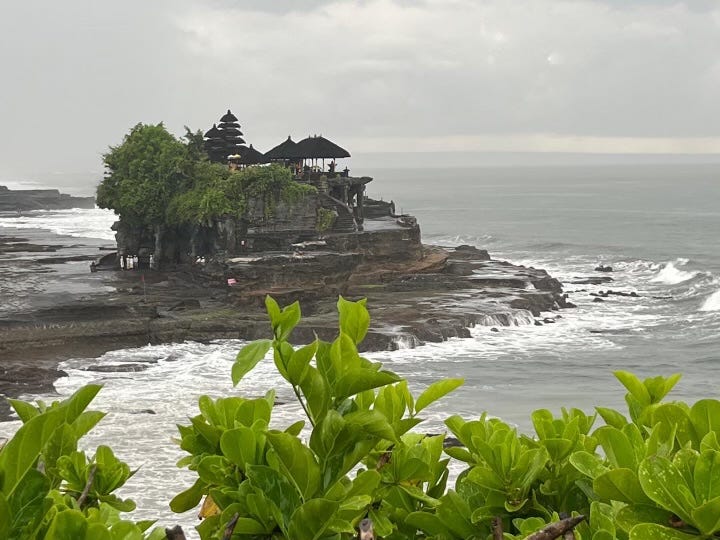Before we left for Bali, I bought an audiobook called History of Bali: A Captivating Guide to Balinese History and the Impact This Island Has Had on the History of Indonesia and Southeast Asia. The title is long, but the audiobook is short—about three hours. Also, it’s part of a series from a company called Captivating Guide, but if I’m being honest, the audiobook is more interesting than captivating. I bought the audiobook because I wanted to level-up my knowledge in order to ask better questions while visiting Bali. Nerd alert.
By mentioning my extracurricular reading, I’m trying to sound smart, but in the interest of full-disclosure, I need to tell you that when it comes to Bali, I am dumb. Really dumb. I know, for example, that Indonesia is a Muslim country, but that Bali is majority Hindu. I know that the Dutch colonized the Indonesian archipelago, but I had no idea that this region—wedged between the mainl…
Keep reading with a 7-day free trial
Subscribe to Situation Normal to keep reading this post and get 7 days of free access to the full post archives.



